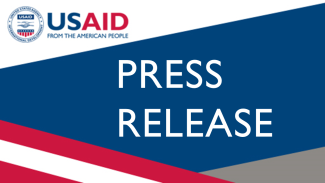The United States government, through the U.S. Agency for International Development (USAID), recently led a virtual dialogue with more than 600 participants on government programs and private sector business models that can boost internet affordability and address digital inequality in the Philippines.
USAID Philippines Acting Deputy Mission Director Jeff Goebel joined Acting Department of Information and Communications Technology (DICT) Secretary Emmanuel Rey Caintic and representatives from the private sector and civil society to discuss ways to make the internet more accessible for all Filipinos.
“USAID is working toward a future where digital technology promotes inclusive growth, fosters resilient and democratic societies, and empowers all, including the most vulnerable,” said Acting Deputy Mission Director Goebel. “Closing the digital divide requires global cooperation, leadership, and innovation in finance and technology. This is a need that is even more crucial today as we continue to face the challenges brought about by the COVID-19 pandemic.”
While the cost of one gigabyte (1GB) of mobile data in the Philippines has become more affordable over the past five years, 1GB mobile broadband remains unaffordable for about 40 percent of the population. Only about half of the country’s population use the internet due to high prices of data services and devices, and limited network coverage in the countryside.
“Our main challenge is the coverage of quality and affordable internet services, especially in remote locations. With wider coverage, Filipinos will be able to access information and participate in rebuilding the Philippine economy,” said DICT Acting Secretary Caintic in his keynote message.
Participants noted that promoting infrastructure sharing, improving national data collection efforts, and encouraging interconnection and peering, among others, could help address these challenges.
Technologies and strategies to maximize bandwidth and optimize energy consumption are key to keeping costs low. Strategic partnerships with government agencies such as the Department of Education and civil society organizations to bring education programs to remote areas can also help bridge the digital divide.
Through its Better Connectivity and Access (BEACON) project, USAID helps improve the Philippines’ ICT and logistics infrastructure; strengthen the regulatory, business, and innovation environment; and bolster cybersecurity. To help bridge the digital divide, USAID also assists the government in automation and digitization efforts, and supports community networks to expand low-cost internet access for underserved communities.

